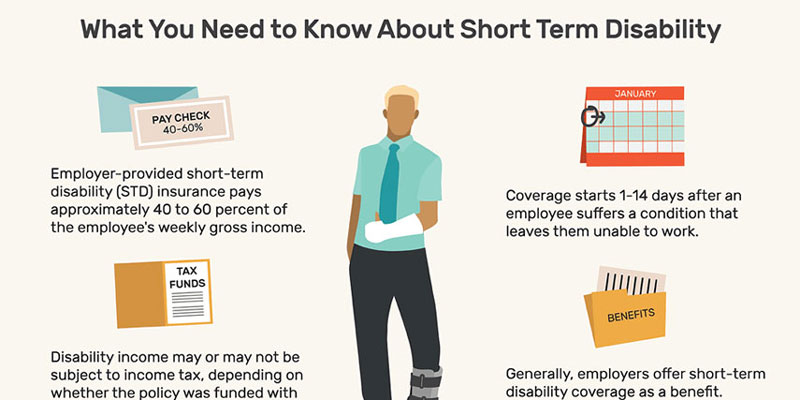Getting Your Real Estate License
Oct 03, 2024 By Kelly Walker
Do you have dreams of becoming a real estate agent? Are you ready to move forward with your career ambitions and be in control of your financial future? A successful career in real estate requires the right qualifications, experience, and knowledge.
Investing time and effort into getting licensed as a Real Estate Agent can help open many doorways for business opportunities across many industries.
In this blog post, we’ll provide helpful information on obtaining your Real Estate license from start to finish so you can become a certified professional in no time.
Why Become a Real Estate Agent
Real estate is an exciting and rewarding field that offers great potential for career growth. Becoming a real estate agent allows you to work independently and be your boss while also allowing you to help others achieve their goals of buying or selling a home. With the right training and skills, you can establish yourself as a trusted expert in the field and enjoy all the benefits that come with it.
6 Steps to Become a Real Estate Agent
Depending on where you obtain your licence, becoming a real estate agent requires an initial financial and time commitment. Here is a broad overview of how to become a real estate agent, while the particular criteria vary by state.
Research Your State’s Requirements
Before taking any steps to become a real estate agent, you need to know what the licensing requirements are in your state. Research is key here as each state has laws and regulations governing real estate practice.
Take some time to read up on these requirements and ensure you meet them before moving forward. You may also want to look into other licensing options, such as a broker’s license or a dual real estate and mortgage lending license. This will give you the most comprehensive industry knowledge and make you more attractive to potential employers.
Take advantage of online resources, such as websites and forums, to get an in-depth look at the different requirements in your state. Make sure you understand them fully before moving forward with your plans.
Take a Prelicensing Course

You must obtain a real estate license to become a real estate agent. To do so, the first step is to take a prelicensing course and pass the exam. A prelicensing course teaches you the necessary information and skills to become an effective real estate agent.
The courses cover property law, contracts, finance, and regulations. Most courses are taught online and can be completed in a few weeks if you have the dedication. You must also take an exam at the end of the course to obtain your license.
The prelicensing course covers all aspects of real estate transactions so that you can become an informed agent. Besides taking the course, it is important to continue learning and developing your skills over time. This will help you stay current on ever-changing regulations and laws related to the real estate industry.
Take the Licensing Exam
The next stage is to take the licencing exam after finishing your real estate licencing course. Your understanding of real estate laws and principles will be evaluated on this exam. To pass the exam, you must be knowledgeable of the rules and regulations that apply at both the federal and state levels.
The best way to prepare for the exam is by studying and understanding the material you have learned in your course. You can also review online materials, manuals, and study guides to prepare for the exam. Additionally, take practice exams and review questions to help better understand the material and evaluate your readiness for the licensing exam.
Once you feel confident with the material, it's time to schedule an appointment with a testing center to take the real estate license exam. Depending on your state, you may need to bring additional documents, such as a driver’s license or passport, with you on the day of your exam. Before taking the test, read and understand all the instructions provided by the testing center.
Activate Your Real Estate Agent License
Activating your real estate license is the first step to becoming a successful agent. Before beginning this process, you must understand the requirements and regulations in your specific state. Depending on where you live, you may need to take an exam or classes to qualify for your license. Once you have completed all necessary courses and exams, it’s time to activate your license.
Start by applying for a real estate license through the state licensing board. You must provide documentation such as proof of education, criminal background checks, and other supporting materials demonstrating your qualifications. Once approved, you’ll receive your real estate license in the mail or via email.
Once you have your license, you must register with a local real estate board to begin practicing. This includes joining the local Multiple Listing Service (MLS) so that you can list properties on their website and complete other transactions.
Consider Becoming a Realtor

Becoming a realtor is one of the most rewarding and fulfilling career choices. As a real estate agent, you’ll have many opportunities to work with clients, build relationships, and make a difference in people's lives. Plus, you’ll have the flexibility to work from anywhere in the country and set your hours.
If you’re thinking about getting your real estate license, there are a few steps you need to take. The first step is to research the requirements for licensing in each state, as they can vary from place to place. You’ll also need to complete pre-licensing courses and pass an exam. Once you have your license, it will be time to start the business.
Realtors often practice their profession by networking with potential clients, researching properties and markets, and working to provide excellent customer service. You’ll also need to stay up-to-date on industry trends while continuing your education.
FAQs
How Can I Market Myself As a New Real Estate Agent?
Reaching out to friends and family and creating a marketing network can help start your career. Contact new home builders, other realtors, and even lenders, and use social media to create your agent profile to generate news about your new career.
What Is License Reciprocity and License Recognition?
When two states agree to recognise each other's official real estate licences, it is known as licence reciprocity. This reduces the time and effort required to complete a multi-state transaction. A tracking tool called "Broker and Salesperson Licence Reciprocites and Portability" is available from the National Associations of REALTORS®, and many jurisdictions recognise licences from other states, particularly nearby states.
What Is Required by the National Associations of Realtors Code of Ethics?
The three main parts of the Code of Ethics specify the rules for "Duties to Clients and Customers," "Duties to the Public," and "Duties to REALTORS."
Conclusion
Becoming a real estate agent can be a lucrative and fulfilling career in the business world. It may seem daunting, but taking the first step to get your real estate license will open many doors. Researching your state’s requirements, taking a prelicensing course, taking the licensing exam, activating your real estate agent license, becoming a Realtor, and joining a real estate brokerage are all necessary steps to get you on the right track. With this comprehensive guide, you should be able to take these critical steps with more confidence in achieving your goal of getting your real estate license.

What Is a Joint and Survivor Annuity?

What Is a Due From Account?

Best Short-Term Disability Insurance

Calculating Present and Future Value of Annuities

Which Industries Have the Highest Inventory Turnover?

How Are Manufacturing Expenses Vary From Production Costs

Most Famous Leveraged Buyouts

What Is Management by Objectives (MBO)?

Essential Guide to Understanding Deposit Slips

